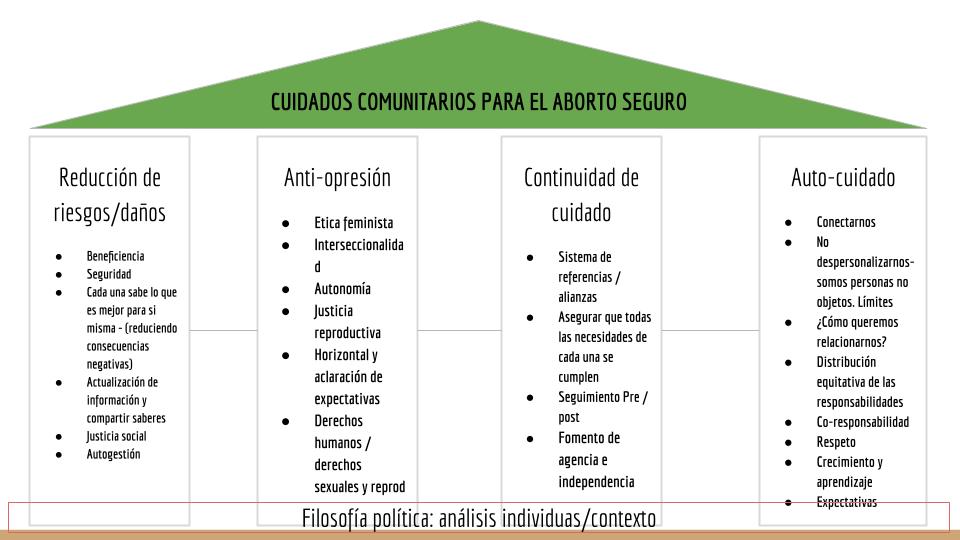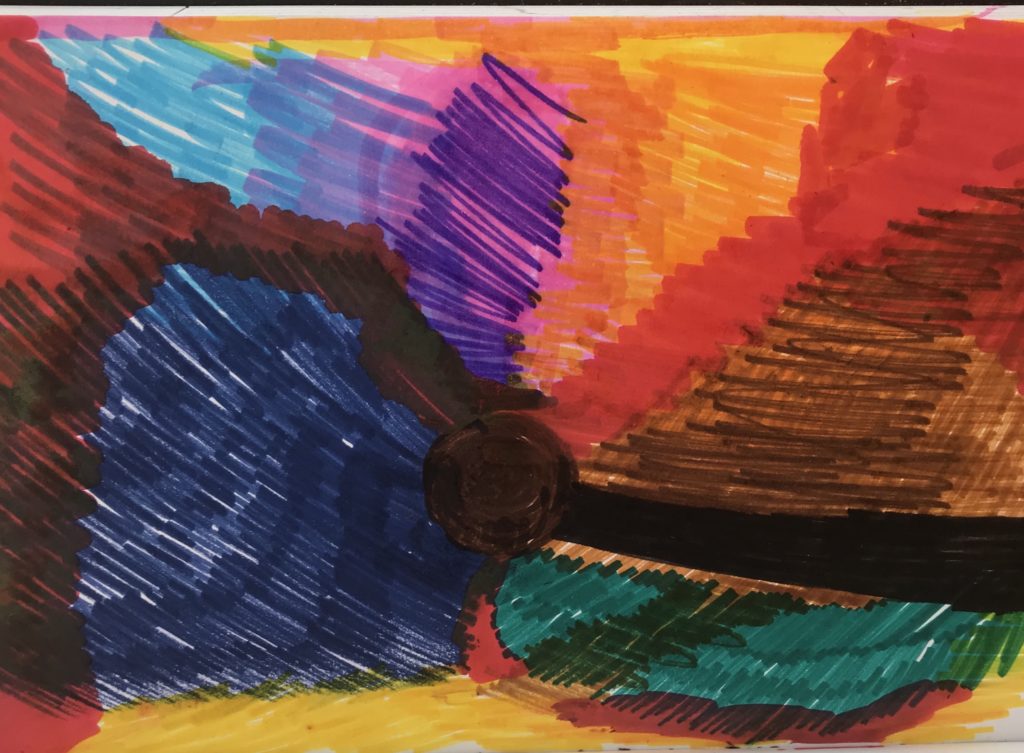Support vital abortion stigma busting efforts today!
DONATEContinuing Solidarity: Doula and Acompañante Workshop
Posted February 23, 2021 byLast year, in February 2020, inroads members began meeting virtually convene in “spacious solidarity” to discuss and strategize the impacts of accompanying abortions during times of covid-19. WIth this space for collective visioning, it became clear that inroads members had a desire for more intentional and dedicated time to discuss the practical implications of abortion stigma on their work as abortion support people in these times. Inroads members Isabel Pérez, Daniela Tellez Del Valle, and Davi Lopez Green, took the lead to host and prepare a three day training and workshop, which focused on creating a safe environment to discuss abortion stigma, mutual support, and the ancestral knowledge that different kinds of abortion providers and support people share.
This series of three-day, two-hour workshops lead up to 28 September, International Safe Abortion Day. and was geared towards any inroads members who have experience or are interested in building their skills and community around providing abortion support.

Abortion doula workshop: a safe environment to discuss ans share about abortion stigma, mutual support, and knowledge of different kinds of abortion providers 
Taller de acompañamiento : un ambiente seguro para discutir y compartir sobre el estigma del aborto, el apoyo mutuo y el conocimiento de los diferentes tipos de proveedores de servicios de aborto tres días: 23-25 septiembre 15:00 – 17:00 UTC
Learn more below:
Accompanying abortions workshop: the presence of stigma
Facilitated by Daniela Tellez Del Valle; Danielle Lopez Green; Isabel Pérez
The goals of the workshop were to create a safe and horizontal environment to address and reflect stigma towards induced and voluntary abortion among different types of abortion providers. other goals included:
- To identify emotional, medical and institutional issues intersecting medical abortion.
- To share and reflect on skills and tools to address abortion stigma amongst abortion care providers.
- To share experiences for collective and professional growth.
- To build a community care framework for abortion accompaniment.
Day 1: Reflect and Share
Participants worked to identity stigma through the sharing withholds method (sharing thoughts that we keep to ourselves). Participants were asked to fill a Likert scale and reflect on the results collectively. They were asked to share their comments and analysis on the following statements:
- a. People should be able to have as many abortions as they want.
- b. The best thing for minors who are pregnant is to have an abortion.
- c. Providers should get consent from a minor’s parent(s) before providing an abortion to that minor.
- d. People with HIV who have a wanted pregnancy should be offered information about abortion.
- e. Pregnant people who have less economic resources should consider having an abortion.
- f. Women who don’t want to get pregnant should use some kind of birth control (condoms, the pill, IUD, etc.).
- g. A woman who is having an abortion needs to be given information about birth control, even if they don’t ask for it.
- h. A woman who has had more than 1 abortion needs to be given information about birth control.
- i. Abortion can be used as a form of birth control.
- j. Self-managed abortion should only be done in first 12 weeks of pregnancy.
This workshop felt like a first step of a broader stigma busting conversation necessary to improve the quality of abortion care.
– Participant Evaluation
Day 2: Address Stigma
The next day’s focus was addressing abortion stigma. Participants divided into groups to reflect on 5 real life abortion stigma scenarios. They identified the assumptions made towards the case and the person involved and brainstormed on potential solutions to support the person, from both individual and organizational levels. The scenarios were:
- A woman is feeling guilty about considering an abortion. She’s catholic and feels that if she has an abortion (which she assures you is the best option right now), the spirit of her baby will haunt her until she has to explain herself when they meet after death.
- 15-year-old needs an abortion. Her 17-year-old boyfriend is supporting her, he’s the one who reaching out to you.
- A woman is 22 weeks of pregnant and tells you that she needs to use abortion pills because she can’t continue with the pregnancy.
- A woman with PCOs is very anxious because she needs to have an abortion but thinks she might die and/or having serious complications. Her partner says she shouldn’t use abortion pills, but she can’t access surgical abortion.
- A woman is seeking an abortion for the 4th time. She keeps apologizing to you.
We think the Inroads community should maintain these spaces in order to provide a safe environment for abortion providers and advocates to self-reflect on their own practices, and also to build a community care framework for abortion care that is grassroots and from a holistic and de-medicalized approach.
– Participant from the workshop
Day 3: Applying the Care Model <3
On the final day of the workshop we worked together to building a community care framework. The goal of this session is to identify what community care is (a political action and decision, feminist ethics) and link all the sessions from this perspective so participants can take these reflections and examples to their own work spaces. Participants will be asked to brainstorm around the pillars of community care for abortion care: harm reduction, anti-oppression, continuity of care and self-care.

To close, we focused on applying the community care model to … ourselves! Through an art-therapy session, participants were asked to draw a galaxy of themself as a way to reflect on how their own self-care is important to providing quality services. Participants envisioned themselves as a part of a larger community and depicted their tools to keep on providing safe, tender, and accurate abortion services to their communities.

We believe the workshop was successful because we managed to facilitate a conversational and very participatory space that is usually difficult to maintain through online tools and usually more expected with in-person sessions. With the support of Inroads, we built a space for people from different countries and context to connect, reflect and collaborate to address stigma within the provision of abortion care. The workshop started with the participation of 21 doulas, acompañantes and advocates from Latin America and the Caribbean.
Participant quote
Thanks to the facilitators, Daniela Tellez Del Valle, Danielle Lopez Green, and Isabel Pérez for hosting and sharing such an amazing session with the network!
